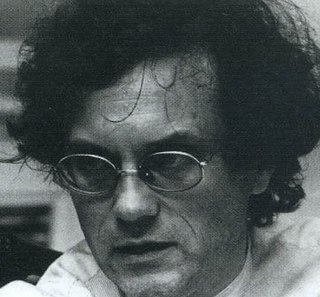A Quote by Clara Zetkin
The machines, the modern mode of production, slowly undermined domestic production and not just for thousands but for millions of women the question arose: Where do we now find our livelihood?
Related Quotes
Every time the diaphragm winks, the camera repeats the question that now travels through cyberspace and invades, as a modern virus, the memories of machines, men and women. The question that history sets forth. The question which forces us to define ourselves and whose answer makes us human: On which side are you?
Take pandemics. There could easily be a severe pandemic. A lot of that comes from something we don't pay much attention to: Eating meat. The meat production industry, the industrial production of meat, uses an immense amount of antibiotics.We're now running out of antibiotics that deal with the threat of rapidly mutating bacteria. A lot of that just comes from the meat production industry. Well, do we worry about it? Well, we ought to be.
The monopoly of capital becomes a fetter upon the mode of production, which has sprung up and flourished along with, and under it. Centralisation of the means of production and socialisation of labour at last reach a point where they become incompatible with there capitalist integument. This integument is burst asunder. The knell of capitalist private property sounds. The expropriators are expropriated.
I shall argue that it is the capital stock from which we derive satisfaction, not from the additions to it (production) or the subtractions from it (consumption): that consumption, far from being a desideratum, is a deplorable property of the capital stock which necessitates the equally deplorable activity of production: and that the objective of economic policy should not be to maximize consumption or production, but rather to minimize it, i.e. to enable us to maintain our capital stock with as little consumption or production as possible.
We need to realize that the economic situation between Mexico and the United States is not just one in which we trade with one another. We make things together. We have shared production platforms. Cross-border trade is part of a single production process, and while apparently the Trump administration will seek to re-examine elements of that production platform, it is what it is and won't be easily dismantled.
Production for the sake of production - the obsession with the rate of growth, whether in the capitalist market or in planned economies - leads to monstrous absurdities. The only acceptable finality of human activity is the production of a subjectivity that is auto-enriching its relation to the world in a continuous fashion.

































